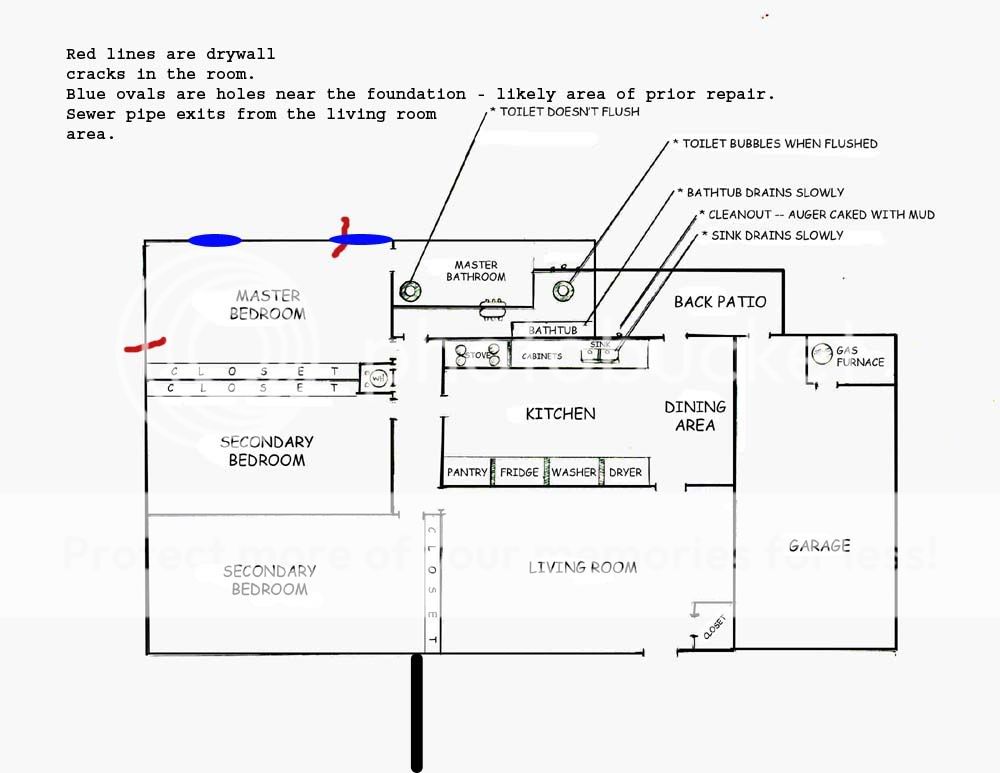Hi,
I posted with some questions a few years back, and I'm ready to follow up. We have an audible hot water slab leak in the Dallas, TX area. It stops when we shut off the hot water valve at the water heater. When we turn the hot water back on, it doesn't start right away. It only starts when we try to run the hot water. I think it's a siphon effect.
I thought about calling a leak detection service, but we can hear the leak pretty well on one side of the wall. My dad thinks the slab is 4" thick at the leak. Can we use a demolition hammer, or do we need to use a jack hammer? We can use a reciprocating saw to cut through any rebar, right?
The property is on soil that's really moist. We're at the end of the block, and the storm drain is in front of our house. I think there might be a leak in the storm drain system that keeps our lawn saturated - there are shallow pits in both the front and back yard. We can use plywood to keep the soil in place when we open the slab, right? Any other tips?
What's the longest length of time we can keep the slab open? If I had my way, the soil wouldn't shift at all.
Thanks.
I posted with some questions a few years back, and I'm ready to follow up. We have an audible hot water slab leak in the Dallas, TX area. It stops when we shut off the hot water valve at the water heater. When we turn the hot water back on, it doesn't start right away. It only starts when we try to run the hot water. I think it's a siphon effect.
I thought about calling a leak detection service, but we can hear the leak pretty well on one side of the wall. My dad thinks the slab is 4" thick at the leak. Can we use a demolition hammer, or do we need to use a jack hammer? We can use a reciprocating saw to cut through any rebar, right?
The property is on soil that's really moist. We're at the end of the block, and the storm drain is in front of our house. I think there might be a leak in the storm drain system that keeps our lawn saturated - there are shallow pits in both the front and back yard. We can use plywood to keep the soil in place when we open the slab, right? Any other tips?
What's the longest length of time we can keep the slab open? If I had my way, the soil wouldn't shift at all.
Thanks.


